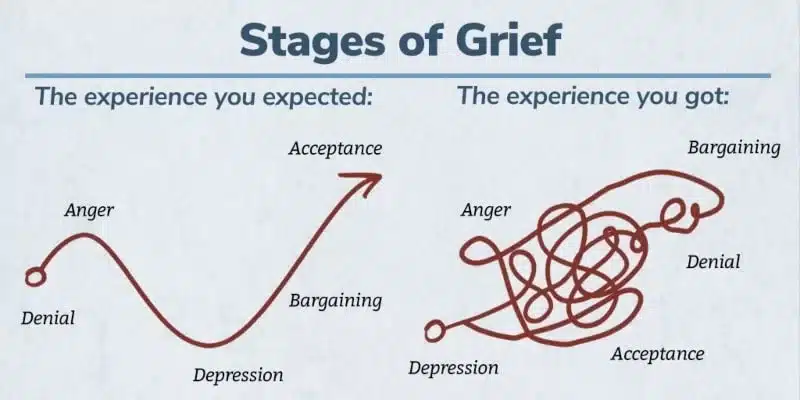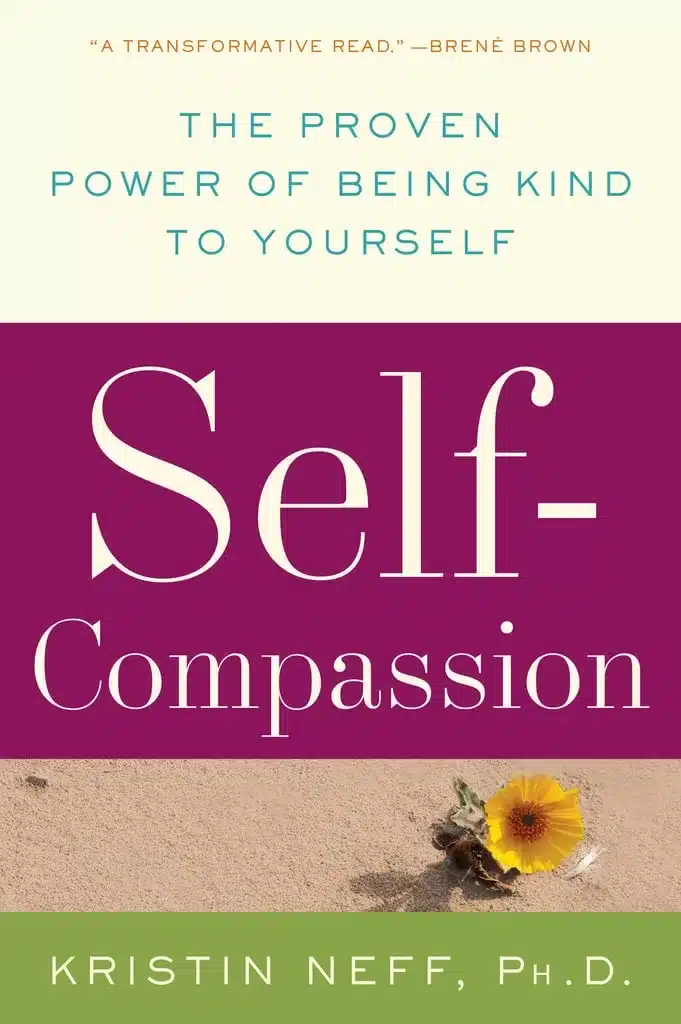Christmas can feel bittersweet for survivors of narcissistic abuse.
The season often brings memories of control, manipulation, or even loneliness, especially if those memories are tied to a toxic relationship or family dynamic. But this year, you can start fresh.
Here are 10 new Christmas rituals you can incorporate into your holiday season to reclaim joy, celebrate your healing, and redefine what this time of year means for you.
Why stick around?
Not only will this post give you actionable ways to make your Christmas feel meaningful and personal again, but you’ll also find answers to common challenges survivors face during the holidays, along with helpful tips and inspiration to brighten your season.
Here are our 10 new Christmas ritual ideas:
1. Annual Declutter of Your Online and Offline Space: A Transformative Ritual for Survivors of Narcissistic Abuse
As survivors of narcissistic abuse, clutter—both physical and digital—can weigh heavily on our mental well-being.
This Christmas, embrace a powerful new tradition: decluttering your space to clear your mind and pave the way for healing.
Dispose of Items Linked to Negative Memories
Old items often hold emotional weight, especially if they remind you of toxic relationships.
Dispose of gifts from narcissists, outdated photos that evoke painful memories, or anything else that no longer aligns with your healing journey.
Helpful Tip: Consider donating these items to thrift stores or selling them to create extra income. Alternatively, repurpose them into meaningful art or Christmas decor, like turning old jewelry into ornaments or replacing photos in frames with uplifting artwork.
Why this matters: Letting go of physical reminders helps reduce emotional triggers and creates space for new, positive experiences.
Unfollow and Block Toxic Connections Online
Just as you declutter your physical space, it’s essential to clean up your digital environment.
Unfollow or block narcissists and their enablers on social media. Remove connections that no longer serve your mental health, and unfollow accounts that perpetuate negativity.
Unfollow news pages that repeatedly remind us of grave injustices and how the world enables narcissists.
Helpful Tip: Replace these with uplifting content from mental health advocates or communities supporting survivors of narcissistic abuse.
Why this matters: A healthy digital space can reinforce your emotional boundaries and provide a supportive online environment.
Here is a detailed article on how to do a digital detox and declutter:
https://ungaslited.com/digital-detox-after-narcissistic-relationships/
For survivors, decluttering isn’t just about organizing—it’s an act of reclaiming control over your space and energy.
Each item or connection you remove is a step toward a clearer mind and a lighter emotional load.

2. Grieve Your Losses for the Year: A Healing Ritual for Survivors of Narcissistic Abuse
For survivors of narcissistic abuse, the end of the year can be a time of reflection and heavy emotions.
Whether you’re mourning relationships, opportunities, or parts of yourself lost along the way, embracing your grief is a vital step toward healing.
Acknowledge Your Losses
Life is unpredictable, and things don’t always go according to plan. You may be grieving losses from this year or even from years past.
Instead of suppressing these emotions, allow yourself to feel them fully.
Journaling or reflecting deeply on what you’ve lost can help you process your emotions and uncover hidden pain points.
Helpful Tip: Write down your feelings without judgment. You don’t have to “move on” immediately—this step is about understanding your grief.
Why this matters: Survivors of narcissistic abuse often suppress emotions to cope, but unprocessed grief can prevent true healing.
The following infographic from Speakinggrief is about the different stages of grief.

Be Compassionate Toward Yourself
Treat yourself with the same kindness and understanding you would offer a grieving friend. Imagine wrapping your younger, vulnerable self in a comforting embrace. Cry if you need to—tears are a natural release.
Helpful Tip: Practice self-soothing techniques like hugging yourself, placing a hand over your heart, or speaking affirmations aloud (e.g., “I am allowed to feel this sadness; it is part of my healing”).
Why this matters: Survivors of narcissistic abuse often struggle with self-compassion. Offering yourself this empathy is a step toward rebuilding your sense of self-worth.
Here is a book recommendation for reading more on self-compassion:

Release Emotions in Your Own Time
Grief doesn’t have a deadline. If you feel stuck, give yourself permission to cry, talk to a trusted friend, or even express your emotions through creative outlets like art or music.
Helpful Tip: Create a “letting go” ritual by writing your losses on paper and burning it (safely) or releasing them into water as a symbolic act of moving forward.
Why this matters: Rituals can help provide closure and signal to your mind that it’s okay to start anew.
Grieving is a courageous act of self-love. It allows you to confront your pain, honor what was lost, and make room for new beginnings.
For survivors of narcissistic abuse, this process is especially significant in reclaiming emotional freedom.

3. Create a New Christmas Ornament to Celebrate a Special Moment This Year
Christmas ornaments can be more than just decorations—they can be memory keepers.
For survivors of narcissistic abuse, crafting an ornament to honor something meaningful from the past year is a beautiful way to focus on growth, joy, and new beginnings.
Reflect on the past year and identify something that brought you happiness or growth.
This could be:
- A place you traveled to
- A new addition to the family (a baby, pet, or even a plant!)
- A career milestone or new hobby
- A favorite movie, TV show, or book
- A relationship that brought positivity into your life
Survivors of narcissistic abuse often struggle to find joy in their journey. This ritual encourages reflection on the good moments and reframes your narrative in a positive light.

4. Visit a Favorite Place or a Dream Destination: A Restorative Christmas Tradition for Survivors of Narcissistic Abuse
For survivors of narcissistic abuse, visiting a place that brings joy and peace can be a powerful way to reconnect with yourself and create meaningful holiday memories.
Whether it’s a beloved local spot or a long-dreamed travel destination, this ritual can become a healing tradition to look forward to every year.
Return to a Beloved Place
Think about a place that fills you with calm and happiness—perhaps a hiking trail, café, library, or beach that holds special meaning for you.
Plan a visit, even if it’s been a while, and allow yourself to savor the moment fully.
Helpful Tip: Take along a journal or camera to capture the experience. Reflect on why this place feels special to you and how it supports your healing journey.
Why this matters: Revisiting places you love reinforces positive associations and helps create a sense of stability in your life, something survivors of narcissistic abuse often crave.
Explore a New Destination
If you’re feeling adventurous, consider exploring a place you’ve always wanted to visit.
It could be a scenic spot in your hometown, a museum, or even a nearby town you’ve never taken the time to discover.
Helpful Tip: If budget is a concern, look for free or low-cost options like local parks, community events, or small day trips within driving distance.
Why this matters: Trying something new can reignite curiosity and inspire a sense of wonder, which is especially healing for survivors rebuilding their sense of independence.

5. Christmas Movie/TV Show Ritual: Finding Joy and Comfort in Holiday Stories
For survivors of narcissistic abuse, reclaiming joyful traditions is essential for healing. A Christmas movie or TV show ritual can offer comfort, nostalgia, and a chance to rewrite your holiday experience with positivity.
Select a Christmas movie or TV show that holds personal significance or brings you joy.
It could be a beloved classic, a cozy holiday rom-com, or even a show that reminds you of the magic of the season.
Helpful Tip: If you have unresolved feelings about a movie or show you couldn’t enjoy in the past due to narcissistic influences, consider revisiting it on your own terms. This can be an empowering act of reclaiming joy.
Why this matters: Survivors of narcissistic abuse often avoid activities tied to painful memories. Watching something meaningful can help reframe those moments with positivity.
Here is a blog post on 10 movies/TV shows to binge-watch this Christmas:
https://ungaslited.com/movies-for-survivors-of-narcissistic-abuse/

6. Christmas Cooking/Baking Ritual: Create Sweet Memories with a Personalized Holiday Recipe
By creating a recipe that reflects your tastes, you can bring joy back into the season and build a ritual that evolves with you each year.
Start with a traditional recipe, like a trifle, cookies, or a savory pie, and put your unique twist on it.
Helpful Tip: Incorporate elements that make the recipe truly yours.
For example:
- Add your favorite fruits, candies, or nuts to desserts.
- Experiment with holiday spices like cinnamon, nutmeg, or cardamom.
- Create a themed presentation, like layering a trifle in your favorite colors or decorating cookies with personal motifs.
Document your recipe and changes in a holiday recipe journal. Over time, it can become a cherished keepsake or even a family tradition.
Why this matters: Personalizing a recipe lets survivors of narcissistic abuse reclaim the joy of creativity, free from the judgments or restrictions often imposed by narcissists.
Seeing your recipe evolve can symbolize your personal growth and healing, making each holiday season feel fresh and meaningful.
Survivors of narcissistic abuse often benefit from rituals that prioritize their comfort and choice, making this tradition uniquely theirs.
Cooking and baking aren’t just about the food—they’re acts of self-expression and self-care.
For survivors of narcissistic abuse, this ritual can transform holiday stress into a celebration of creativity and healing.

7. Volunteering for Abuse Survivors: A Heartfelt Christmas Ritual to Give Back
Christmas can be a challenging time for survivors of narcissistic abuse, but it’s also an opportunity to find healing through connection and giving.
Volunteering to support abuse survivors or individuals facing hardship not only spreads kindness but also fosters personal growth and a sense of purpose.
Spend time at a local shelter, soup kitchen, or another volunteer organization. You can find local opportunities through FoodPantries.org or FeedingAmerica.org.
Consider visiting an elder care home, a senior center, or another facility where individuals may experience loneliness during the holidays.
Support Domestic Abuse Shelters:
Domestic abuse shelters play a crucial role in providing safety and resources to survivors during the holidays. You can contribute by:
- Donating necessities like toiletries, warm clothing, or toys for children.
- Offering your time to help with holiday events or daily tasks.
- Raising awareness about their services in your community.
Ready to start giving back this Christmas? Research local volunteer opportunities and take the first step toward making someone’s holiday brighter.
8. Reconnect with Supportive Figures: Reaching Out to Old Friends, Teachers, and Relatives
For survivors of narcissistic abuse, reconnecting with those who have supported you throughout your healing journey can bring much-needed joy and comfort during the holiday season.
Christmas is the perfect time to reach out to people who have shown you kindness, empathy, and understanding.
Think about the people who have had a positive impact on your life, whether they are old friends, teachers, or relatives.
These individuals may have offered you emotional support, encouragement, or simply a listening ear when you needed it most.
Helpful Tip: Send a heartfelt message or a handwritten card to express your gratitude. Let them know how much their empathy and support have meant to you. You can also share an update on how you’re doing and how their kindness has contributed to your healing.
9. One Week of Digital Detox: A Refreshing Holiday Break from the Online World
For survivors of narcissistic abuse, the constant bombardment of digital messages, news, and social media can be overwhelming, especially during the holiday season.
Taking a week off from technology can be a powerful way to restore balance, conserve your energy, and prepare yourself for the new year with a clearer, more hopeful perspective.
Set aside a week during the holiday season to disconnect completely from digital distractions. This means no social media, no news, no emails, and no messages.
Inform your friends, family, and colleagues that you’ll be offline and will respond to any communication after the week is over.
Helpful Tip: Set up an automatic email or social media reply that kindly explains you’re on a digital break. This helps manage expectations while you focus on your well-being.
Use this time to reflect on your goals for the coming year, whether they’re related to your personal growth, career, or healing journey.
Here is a detailed article on how to do a digital detox and declutter:
https://ungaslited.com/digital-detox-after-narcissistic-relationships/
10. Host the Party of the Year: A Celebration of Love, Joy, and Personal Empowerment
For survivors of narcissistic abuse, creating a space filled with love, support, and fun can be a powerful way to reclaim your sense of self and celebrate the holiday season.
Hosting the party of the year, whether for a select group of cherished friends or just for yourself, allows you to express your creativity and bring joy to those who matter most.
Helpful Tip: Focus on what makes you happy—whether it’s a cozy gathering with a few close friends, a themed dinner party, or an all-out celebration with games, music, and festive décor.
Hosting a party allows you to engage with people who genuinely care about you, strengthening your connections and boosting your confidence.
Whether you’re reconnecting with old friends or simply enjoying time with your closest loved ones, this event will serve as a reminder of your worth and the positive impact you have on others.
Conclusion
Rebuilding your relationship with Christmas as a survivor of narcissistic abuse is about finding rituals that resonate with you.
By creating new traditions, focusing on self-care, and surrounding yourself with positivity, you can turn the holidays into a time of healing and joy.
What new Christmas ritual are you excited to try this year? Share your thoughts in the comments below!
FAQs on Survivors of Narcissistic Abuse
2. What are the symptoms of survivors of narcissistic abuse? Survivors of narcissistic abuse often experience a range of psychological, emotional, and physical symptoms.
Psychological Symptoms:
- Self-Doubt and Guilt
- Anxiety and Depression
- Hypervigilance and Dissociation
Emotional Symptoms:
- Isolation
- Confusion
- Anger
- Loss of Identity
Physical Symptoms:
- Unexplained physical ailments such as headaches, digestive issues, fatigue, and other stress-related conditions
- Sleep disturbances
Cognitive Symptoms:
- Difficulty making decisions
- Memory issues
References:
https://www.choosingtherapy.com/narcissistic-abuse-syndrome/
https://www.medicalnewstoday.com/articles/narcissistic-victim-syndrome
https://www.verywellmind.com/effects-of-narcissistic-abuse-5208164

